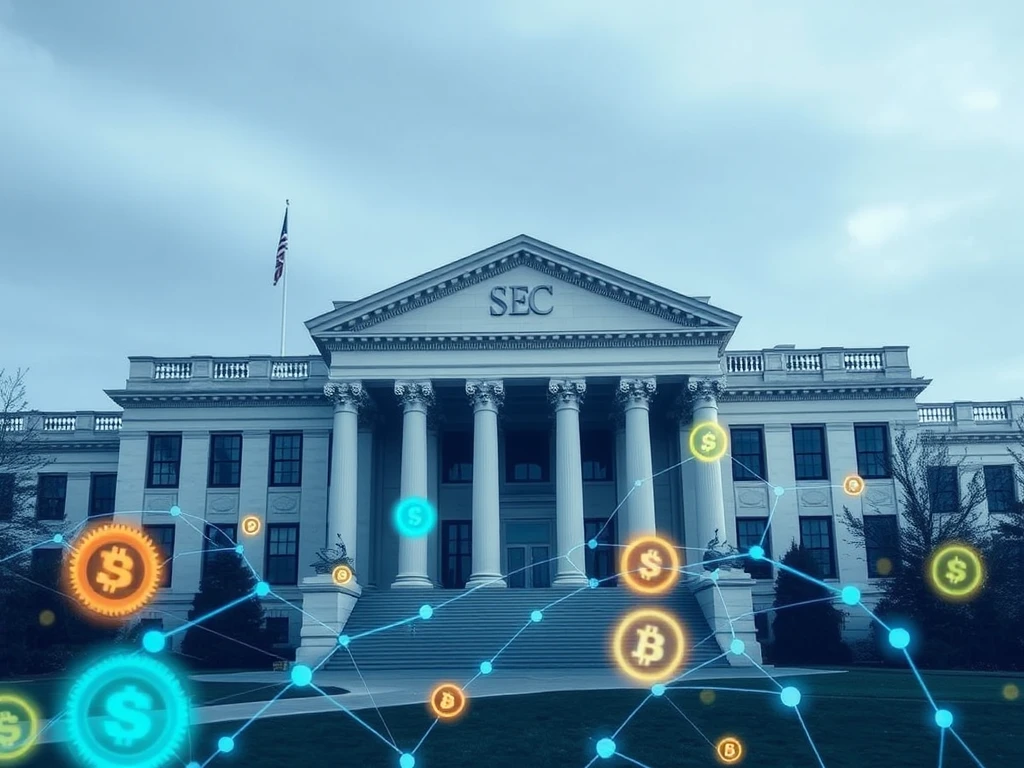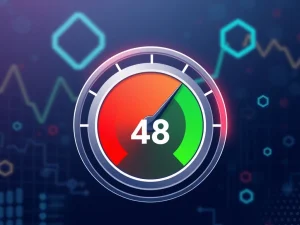Breakthrough: SEC Eyes Easing Rules for Security Tokens

Are we on the cusp of a significant shift in US crypto regulation? The US Securities and Exchange Commission (SEC) appears to be exploring pathways that could make it easier for companies to issue security tokens, potentially ushering in a new era for the digital asset market.
SEC Considers Exemptions for Security Tokens
In a notable development, SEC Commissioner Hester Peirce revealed that the regulator is considering changes that could ease the burden on firms dealing with security tokens. During a speech on May 8, Peirce indicated that the SEC is evaluating a potential ‘exemptive order.’ This order could release companies using blockchain technology to issue, trade, and settle securities from certain traditional registration requirements.
This is particularly relevant for platforms like decentralized exchanges (DEXs). Peirce mentioned that under such an exemption, DEXs might no longer need to register as broker-dealers, clearing agencies, or exchanges. This contrasts sharply with previous actions by the SEC, which has pursued enforcement cases against various crypto entities, including DEXs, for alleged failures to register as securities exchanges.
Why the Potential Shift in Crypto Regulation?
Commissioner Peirce articulated the rationale behind this potential policy adjustment. She highlighted that many existing regulations were developed long before the emergence of blockchain technology and digital assets. As a result, these rules may be ‘inapt’ or ill-suited for the unique attributes and functionalities offered by new technologies like tokenization.
The thinking is that technology itself can sometimes provide safeguards or efficiencies that obviate the need for compliance with outdated regulatory frameworks. By considering exemptions, the SEC acknowledges that a one-size-fits-all approach based on legacy systems may not be the most effective way to oversee innovation in the digital asset space.
Understanding the Implications for Tokenization
The potential for eased registration requirements could significantly impact the broader tokenization landscape. Tokenization involves representing real-world assets (like real estate, art, or company shares) or traditional securities on a blockchain. Simplifying the regulatory path for issuing and trading these digital representations could:
- Lower compliance costs for issuers.
- Increase the accessibility and liquidity of tokenized assets.
- Foster innovation in decentralized finance (DeFi) and other blockchain-based financial applications.
- Encourage more traditional firms to explore issuing security tokens.
While the details of the potential exemptive order are still under consideration, the signal from Commissioner Peirce suggests a potential move towards a more tailored regulatory approach for blockchain-native securities activities.
What Rules Would Still Apply to Security Tokens?
Importantly, Commissioner Peirce clarified that any exemption would not be a free pass. Firms operating under such an order would still be expected to adhere to fundamental investor protection principles. Key requirements likely to remain in effect include:
- Compliance with anti-fraud rules to prevent deceptive practices.
- Measures to prevent market manipulation.
- Certain disclosure requirements to ensure transparency for investors.
- Recordkeeping obligations for regulatory oversight.
The goal seems to be removing unnecessary registration hurdles while preserving essential safeguards designed to protect investors and maintain market integrity.
A Potential Shift Under New Leadership?
This exploration of new rules for security tokens comes as the SEC sees a change in leadership. Under former Chair Gary Gensler, the agency adopted a more aggressive enforcement stance towards the crypto industry, initiating numerous lawsuits against firms for alleged securities law violations.
With Paul Atkins sworn in as the new Chair in April, the agency appears to be taking a potentially different tack. Recent guidance from the SEC regarding other types of digital assets, such as clarifying that certain memecoins and stablecoins might not qualify as securities under specific circumstances, also suggests a possible recalibration of the agency’s approach to crypto regulation.
Commissioner Peirce’s comments align with a view that regulation should adapt to technological advancements rather than rigidly applying old rules to new paradigms. This potential move towards an exemptive order for tokenized securities could be a significant indicator of the direction the SEC may take under its new leadership.
Summary: Looking Ahead for Tokenization and Crypto Regulation
The SEC’s consideration of new rules to ease the issuance of security tokens represents a potentially pivotal moment for the digital asset industry in the United States. By exploring exempting firms from certain registration requirements, the regulator acknowledges the unique nature of blockchain technology and the potential for tokenization to transform financial markets.
While details are still emerging and the process is ongoing, the comments from Commissioner Hester Peirce offer hope that future crypto regulation could become more tailored and less burdensome for legitimate innovation in the security tokens space. This potential shift could unlock significant opportunities, provided the balance between fostering innovation and protecting investors is effectively maintained.









